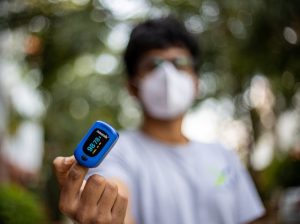In recent years, numerous studies have dived into the controversy surrounding pulse oximeters and their apparent susceptibility for skin tone-based bias in rendering their readings. Directly on the heels of news that the FDA’s advisory committee is convening to discuss and weigh these findings, BioIntelliSense (which is in fact set to be a major presence in that meeting) introduced its new pulse oximetry sensor chipset. The product addresses the issue by adding white light and a spectral sensor that lets it adapt naturally to varying skin pigmentations.
The average pulse oximeter currently in use emits red and infrared light through the skin of the finger, using the shifts in the light caused by a patient’s blood to determine red blood cell oxygen levels. BioIntelliSense’s modifications entail continuously modulating the amount of light emitted based on skin absorption to guarantee equal blood cell illumination. Darker skin tones have been tricky before now due to their tendency to absorb more light before it reaches the tissue.
The FDA had granted approval for the spectral sensor tech early last year via Zoe Medical's in-hospital patient monitoring. As BioIntelliSense leverages it now to apply to a much broader span of monitoring technology, the company’s Founder and Chief Executive Officer, Dr. James Mault, hopes it will allow for “the democratization of this advanced technology across consumer and medical grade devices.”























